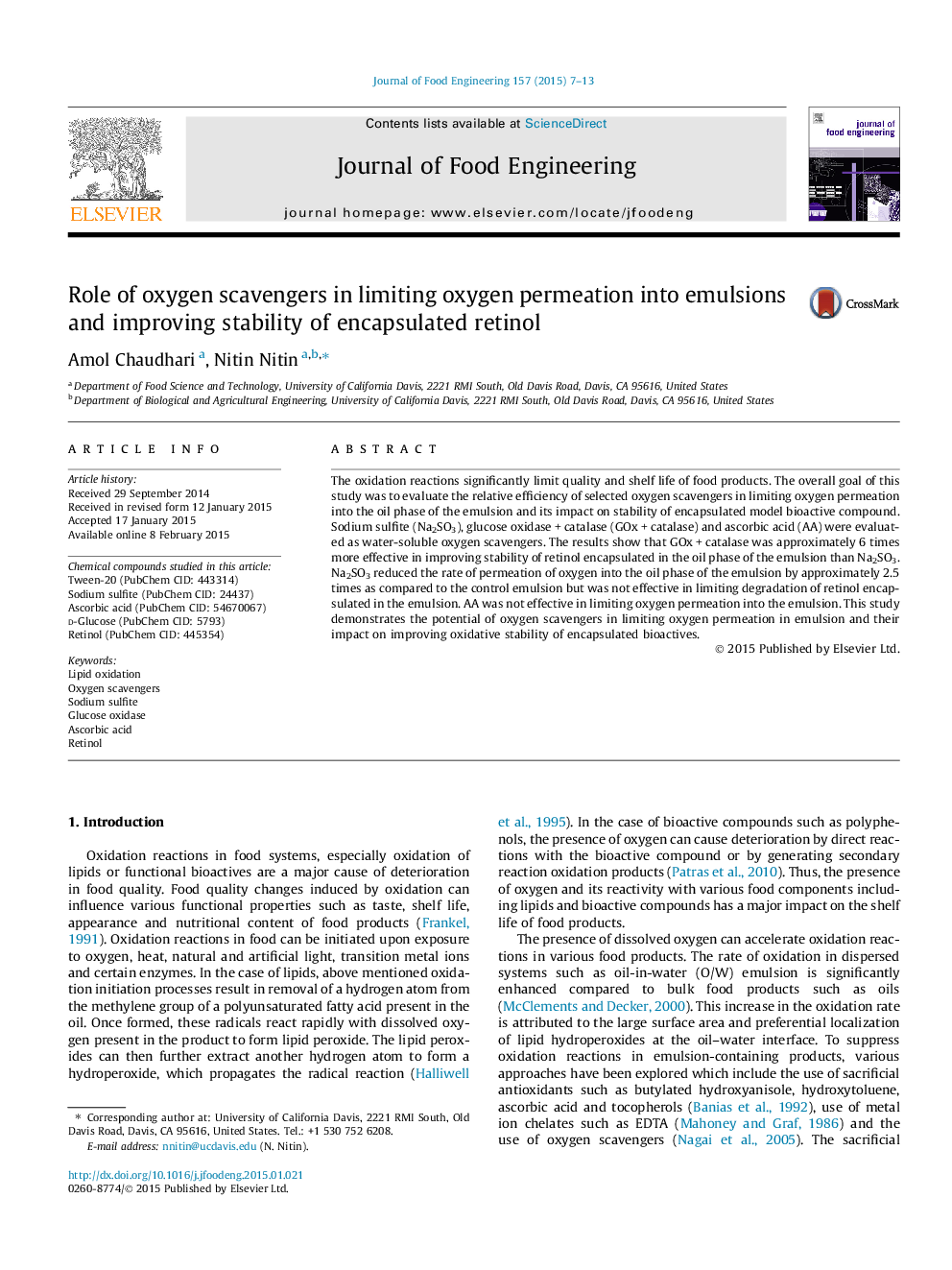| Article ID | Journal | Published Year | Pages | File Type |
|---|---|---|---|---|
| 222896 | Journal of Food Engineering | 2015 | 7 Pages |
•Enzymatic oxygen scavenger eliminates oxygen permeation into the emulsion core.•Glucose oxidase improves oxidative stability of retinol encapsulated in emulsion.•Enzymatic oxygen scavengers are better than sodium sulfite and ascorbic acid.•Limiting oxygen permeation does not completely eliminate oxidation of bioactives.
The oxidation reactions significantly limit quality and shelf life of food products. The overall goal of this study was to evaluate the relative efficiency of selected oxygen scavengers in limiting oxygen permeation into the oil phase of the emulsion and its impact on stability of encapsulated model bioactive compound. Sodium sulfite (Na2SO3), glucose oxidase + catalase (GOx + catalase) and ascorbic acid (AA) were evaluated as water-soluble oxygen scavengers. The results show that GOx + catalase was approximately 6 times more effective in improving stability of retinol encapsulated in the oil phase of the emulsion than Na2SO3. Na2SO3 reduced the rate of permeation of oxygen into the oil phase of the emulsion by approximately 2.5 times as compared to the control emulsion but was not effective in limiting degradation of retinol encapsulated in the emulsion. AA was not effective in limiting oxygen permeation into the emulsion. This study demonstrates the potential of oxygen scavengers in limiting oxygen permeation in emulsion and their impact on improving oxidative stability of encapsulated bioactives.
